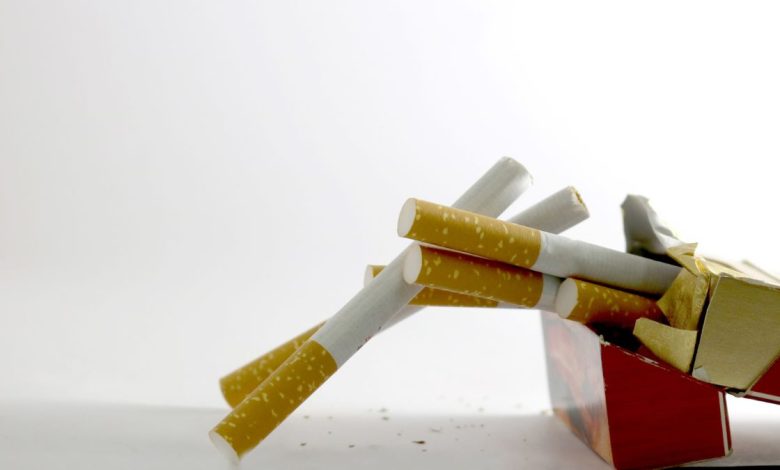Track-and-Trace: The Technology That Could Stop South Africa’s Cigarette Smuggling

South Africa loses billions in tax revenue each year because of illicit cigarettes. Recent research found that R17.6 billion was lost in 2022 alone. This devastating leakage hampers public services and strengthens organised crime networks.

A potential game-changer exists: Track-and-Trace technology.
What Is Track-and-Trace?
Track-and-Trace is a digital system that places secure, unique codes on every legal cigarette pack. These codes allow SARS and law enforcement to monitor cigarettes from the factory floor to the retail shelf.
By detecting diversion into the black market, this technology could transform how South Africa tackles cigarette smuggling.
Not sure if your smokes are genuine? Read our guide: Fake or Legal? How to Identify an Illicit Cigarette Pack.
Why Track-and-Trace Matters for South Africa
South Africa’s cigarette smuggling problem fuels crime, undercuts legal businesses, and robs the Treasury of funds for healthcare, education, and policing. Without effective monitoring, illegal cigarettes continue to flood the market.
The Global Standard: WHO Protocol on Illicit Trade
The World Health Organisation’s Protocol to Eliminate Illicit Trade in Tobacco Products calls for all member states to adopt Track-and-Trace. Countries that have implemented these systems report stronger enforcement and better revenue collection.
South Africa has signed the protocol but has not yet ratified it.
Expert Opinion: SARS Needs a Systemic Solution
According to tobacco policy experts at UCT, “SARS should introduce a traceability system for alcohol and cigarettes”, noting that production counters and CCTV are not enough. Track-and-Trace provides an independent, tamper-proof digital trail that enhances enforcement.
SATTA’s Position on Track-and-Trace
The South Africa Tobacco Transformation Alliance (SATTA) has consistently called for the urgent adoption of Track-and-Trace. As the sector’s leading voice, SATTA stresses that:
- The illicit trade threatens farming and manufacturing jobs.
- Revenue lost could have funded essential social services.
- Only a digital, interoperable Track-and-Trace system can close the supply chain gaps.
SATTA urges the government to move quickly from partial monitoring to full-scale implementation.
The Cost of Inaction
Without Track-and-Trace, illicit trade remains deeply entrenched. Cheap illegal cigarettes, sometimes sold for as little as R10 per pack, keep hooking young South Africans. Spaza shop owners, who struggle to compete with black-market prices, are also among the victims.
Think a cheap pack is harmless? Discover the risks in Inside the Pack: The Hidden Dangers of Buying Illegal Cigarettes
Enforcement Is Not Enough
Recent SARS raids and seizures at Beitbridge highlight the scale of smuggling operations. While these busts disrupt supply chains temporarily, enforcement alone cannot keep pace with syndicates. Track-and-Trace would provide SARS with real-time oversight to target leakages before they reach the market.
Jobs and Public Health at Risk
The illegal cigarette trade is not just a tax issue. It erodes legitimate tobacco farming and manufacturing, leading to job losses. Moreover, illicit cigarettes often bypass health regulations, exposing smokers to greater risks.
Technology in Action: Success Stories Abroad
Kenya’s Track-and-Trace system increased tobacco excise collections by more than 30% within its first year. Brazil and Turkey also report measurable successes. These examples prove that when properly implemented, Track-and-Trace delivers results.
A Roadmap Forward for South Africa
For Track-and-Trace to succeed locally, South Africa must:
- Ratify the WHO Protocol.
- Invest in a secure digital coding and monitoring system.
- Strengthen cross-border collaboration with SADC neighbours.
- Guard against tobacco industry interference in system design.
Call to Action: Citizens Can Play a Role
Every South African can help stop cigarette smuggling. By refusing to buy illegal packs and reporting suspicious sales through official channels, consumers can protect jobs, public health, and the economy.
Report illicit cigarettes via the SATTA portal.
Want to know if your smokes meet the legal price floor? Read The R26.22 Rule: How to Tell if Your Cigarettes Are Legal or Not.
A Turning Point for South Africa
Track-and-Trace is not a distant dream; it is a proven solution. Implementing it could reclaim billions for the Treasury, protect South African jobs, and dismantle smuggling syndicates.
As SATTA notes, South Africa has an opportunity to cut illicit trade to 20% by 2030 if government, business, and citizens act together.



